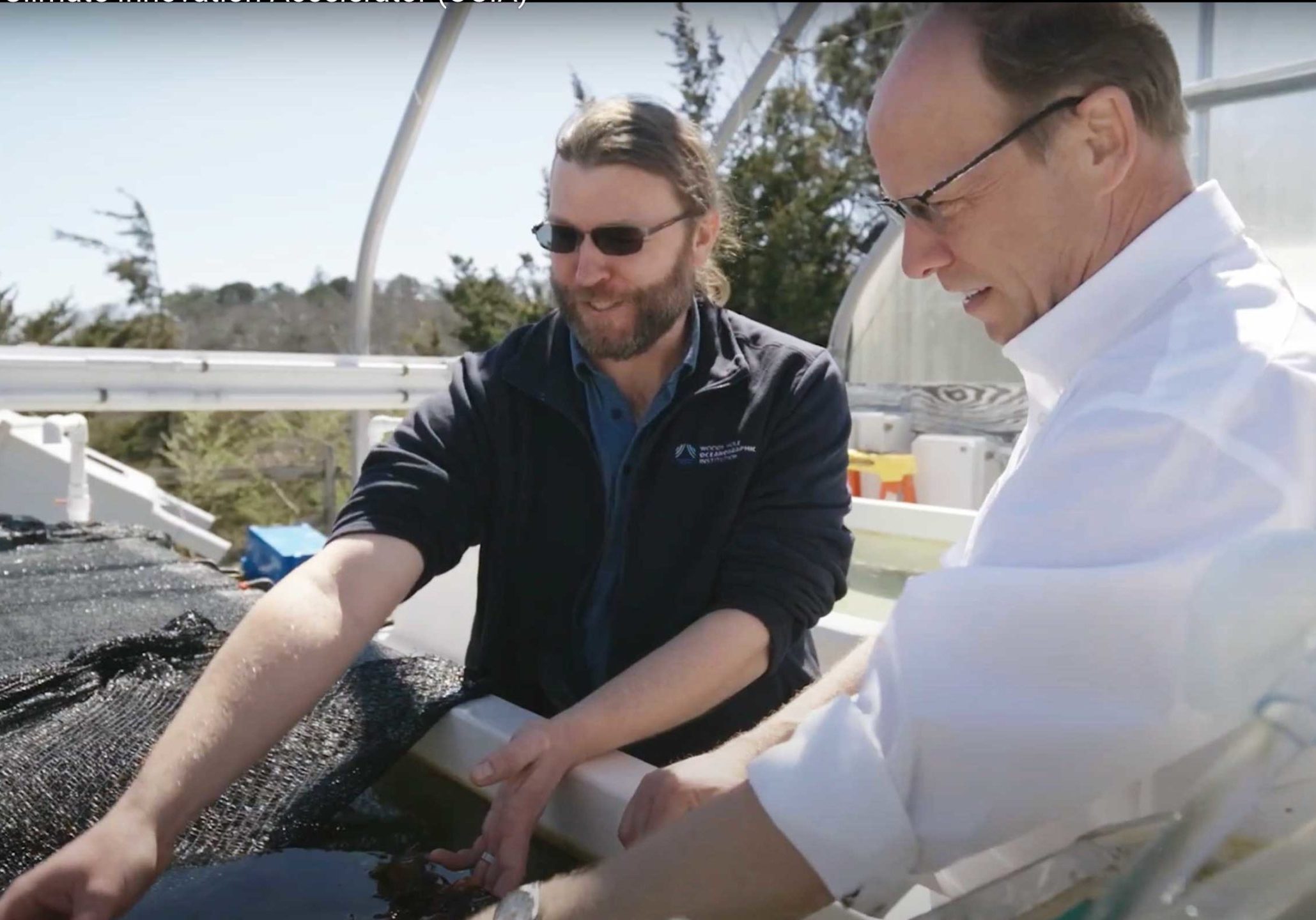2023 OCIA Research Awards
With the support of Analog Devices, Inc. (ADI), OCIA is awarding annual grants to internal WHOI investigators at two levels: Incubation Awards provide up to $100,000 in seed funding to support design, exploration, and/or early execution of new, cutting-edge scientific initiatives; and Acceleration Awards provide up to $300,000 each to expand successful or mature programs of cutting-edge scientific initiatives.

The Modular Ocean Sensing Array (MOSA)
Principal Investigators:
Gil Averbuch, John Reine, and Timothy Duda (Applied Ocean Physics & Engineering)
The Problem:
For decades, ocean acoustics (OA) has been a key component of ocean sciences. However, currently used monitoring technologies present several limitations that hinder progress in ocean sciences, especially OA studies. These limitations include sample-dropping, non-synchronous measurements, no data streaming, difficulty modifying the configuration, and deficiency of physical oceanography (PO) measurements.
The solution:
A low-cost, open-source Modular Ocean Sensing Array (MOSA) will enable scientists to incorporate a broad range of ocean sensing instrumentation, including OA and PO. MOSA deployed in both 2D and 3D configurations, use CSAC (chip scale atomic clock) and GPS (global positioning system) for synchronous timing will deliver real-time data, allowing the marine science community to detect and localize whales in real time, study the abundance of bubbles in storms, monitor pH as a proxy for dissolved CO2, detect biological scattering layers, and acoustically study sea-ice dynamics. The proposed open-source, low-cost product will push the frontiers of ocean sciences and will make possible a significant increase in the number of instruments deployed worldwide by encouraging further advancements and improvements across the community.
Field Testing of a Dynamic Coastal Sensing Network: The High-frequency, radar-based sensor mesh approach
Principal Investigators:
Anthony Kirincich (Physical Oceanography)
The problem:
Land-based High Frequency Radars (HFRs) have incredible potential to increase our environmental intelligence of coastal ocean processes on all time scales. From traditionally measured surface currents to high-resolution estimates of winds and waves, to storm surge and tsunami sensing, HFRs have the potential to provide products will help society reduce risk within the rapidly changing coastal environment and improve our protection of it. However, as currently implemented, HFRs suffer from high platform cost, poor product availability, and low network reliability. Forward progress depends on rapidly increasing the scale at which we deploy HFRs while shrinking their footprint and cost.
The solution:
Previous OCIA-funded efforts have successfully tested smaller implementations of an HFR system based on an open-source radar design and documented success in both the creation of advanced wave and wind products as well as operations as a multi-static, multi-radar sensing mesh. This follow-on effort will conduct field testing of a dynamic coastal sensing network in an area known for significant coastal hazards to document and further the mesh approach to ocean observations. Depending on access and funds, 4-5 systems will be deployed, and wind, wave, and current products developed within the framework of a user-driven software interface that will be vetted by both coastal managers and first responders in the area. My long-term goal is to enable dense, distributed networks of single or multi-channel radio systems capable of making a wide range of critically needed coastal ocean observations via remote sensing.
